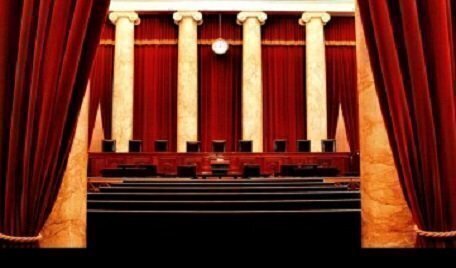In a brief order Friday afternoon, the Supreme Court canceled a hearing that had been set for February 19 on the controversy over asking every American about their citizenship during next year’s census. The Justices appear to be awaiting the next move by the Trump Administration on the legality of posing that question.
 The action came one day after states, cities and private organizations that are challenging the plan to ask about citizenship told the Court that the procedural issue it was preparing to consider at the February hearing had now all but disappeared in the wake of a final ruling by a federal trial judge barring the planned question.
The action came one day after states, cities and private organizations that are challenging the plan to ask about citizenship told the Court that the procedural issue it was preparing to consider at the February hearing had now all but disappeared in the wake of a final ruling by a federal trial judge barring the planned question.
Without waiting for a formal reply by the Administration to that filing, but no doubt having some awareness that the situation had now changed markedly, the Court said the hearing was off and that the schedule for filing remaining written briefs in the case had been suspended until further order of the Court.
The core issue in this controversy, which has heavy constitutional and political overtones, is whether the government has the legal authority to ask every household in the nation to declare the citizenship of everyone living there, whether they are in the country legally or not. That is the issue that U.S. District Judge Jesse M. Furman decided on Tuesday, barring the Census Bureau from asking that question.
The Trump Administration’s next step appears to be starting a fresh appeal, focused on Judge Furman’s ruling. There is still time for that to reach and be decided by the Justices during the current term, and there will be pressure on the Justices to do that because the Census Bureau says that it needs to know by June what to put on the census questionnaire.
The outcome will affect the allocation of seats in the U.S. House of Representatives after the 2020 census, the drawing of new election districts across the nation, and the distribution of hundreds of billions of federal money that is based on population figures.
With the holiday weekend now underway in the federal court system, nothing further is likely to come from the Supreme Court on the census controversy until at least Tuesday morning, when the Justices return to the bench. New orders and opinions in pending cases are to be released that morning, but it is doubtful there will be anything further on this particular case.
The cancellation of the February hearing and the suspension of briefing on the census case as it now stands before the Court are only temporary gestures; as the Court implied, a “further order” could be coming. That will give the Trump Administration lawyers working on the case time over this weekend to prepare their next move.
Having already filed a formal notice that they will challenge Judge Furman’s decision against the citizenship question in a new appeal, they already have signaled that the controversy is not at an end. What remains to be answered is the question of how fast the Administration lawyers actually move to set up a final Supreme Court review on that dispute.
As things stood on Friday evening, the most likely scenario is that the Administration will soon seek to bypass the usual appeal level – in this case, the U.S. Court of Appeals for the Second Circuit – and have the Supreme Court move in to resolve the controversy before the current term ends, probably in late June. There is a still an opportunity, but it is very short under normal Supreme Court scheduling, to get an important and potentially difficult new case heard and decided by the end of the term.
The one aspect of the overall controversy that does appear to be a dead letter now is whether those state and local governments and private organizations that are challenging the citizenship question would be able to personally question high-level Administration officials to test their motives for seeking to ask every household in the nation about the citizenship of everyone in the household. The challengers have argued that the real motive was ethnic discrimination against Hispanics.
The specific desire to question Commerce Secretary Wilbur Ross, who supervises the census, was at the center of the dispute that was due for a hearing by the Justices next month. Judge Furman decided against the Administration plan without that session ever occurring, and that appears to explain the order the Justices issued on Friday afternoon essentially shutting down that phase and setting the stage for the Administration to put together a new appeal.
Lyle Denniston has been writing about the Supreme Court since 1958. His work has appeared here since mid-2011.







